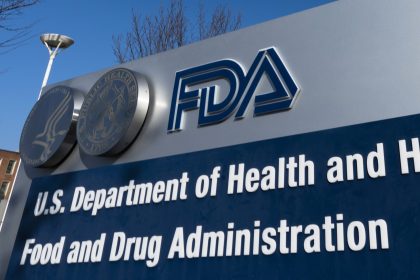Part D Redesign Could Threaten Organ Transplant Recipients’ Second Lease on Life
COMMENTARY

For more than 40 years, Glenda Daggert has lived with Type 1 diabetes and resulting kidney failure. She finally received her second chance — a simultaneous kidney and pancreas transplant — in 1999. She is one of the lucky ones.
As we celebrate World Kidney Day this March 14, let us not forget about the 800,000 Americans with end-stage renal disease. These are the folks who need a kidney transplant or dialysis to survive.
The government says a staggering 90,000 Americans are waiting for lifesaving kidney transplants. Tragically, 13 patients will die every day while waiting. Next month, the Centers for Medicare and Medicaid Services will clarify key pieces of the Part D redesign authorized under the Inflation Reduction Act.
Their decisions will have implications for an important lifeline for transplant recipients: access to lifesaving drugs.
You see, for Glenda receiving a lifesaving transplant is only half the battle. Once transplanted, patients start a lifelong journey to keep their new organ — and themselves — healthy and functional. Few things are more vital than having exactly the right combination of prescription drugs to prevent organ rejection and other major problems.
Receiving a lifesaving organ is marvelous. But keeping it is not easy. Just ask Glenda. For more than two decades, she has faithfully followed the rules; she sees her doctor regularly, exercises, eats healthy foods and refrains from smoking at all or drinking too much. But there is another rule Glenda must follow, and it is outside her control.
Like other organ transplant recipients, Glenda needs uninterrupted access to specific combinations of immunosuppressants to keep her alive and avoid dangerous complications. The prescription drugs Glenda needs, covered under Medicare Part D, are not interchangeable with other options. Glenda’s doctors tailor these combinations to her unique needs, which can change over time. Not only can she not swap out different drugs within the same class, but she and her doctors are aware her body reacts differently to supposedly identical generic drugs from different manufacturers.
When a drug plan swapped out two of Glenda’s prescriptions, she had to travel to the hospital every week, for four weeks, for tests. In addition to the inconvenience and expense, Glenda faced real risks of hospitalization or organ rejection. These episodes not only placed Glenda under serious physical risk and constant worry, but they also triggered new and preventable costs to the Medicare program.
Glenda is not alone. All Medicare beneficiaries with organ failure and others of the most serious health conditions — mental illness, cancer, HIV, epilepsy, Parkinson’s disease and lupus — are in the same boat.
These patients need to know they will have the same drug from the same manufacturer with the same ingredients throughout their lives. That is why Congress long ago established the “six protected classes” policy. This bipartisan law is as old as the Part D prescription drug benefit itself. The cornerstone: uninterrupted access to drugs for these conditions to prevent needless harm to patients and burdens to the health care system.
By mandating that Part D plans cover “all or substantially all” of the medications treating these life-or-death conditions, the law allows Glenda and tens of thousands of Medicare beneficiaries to stay well longer, keep away from the hospital, and benefit from the peace of mind that the unique drugs their bodies need will always be covered by their Medicare plans.
The previous two administrations sought to reduce the number of protected classes or water down the “all or substantially all” standard. But these efforts overlooked the needs of vulnerable patients and seemed not to appreciate the many existing utilization management tools already available to health insurance plans. Both times, patient groups were forced to push back — as did Congress — demanding that the proposed regulatory policymakers in the Obama and Trump administrations stand down.
Sadly, the policy is under threat again.
Medicare Payment Advisory Commission officials might recommend loosening protections for patient access to the six protected classes. Worse, execs for pharmacy benefit managers want to weaken the policy because they know keeping all these protected drugs on their formularies will lower their profits.
Now, as CMS implements the IRA through the Medicare Advantage and Part D Advance Notice — and as insurers adjust their new coverage arrangements in response — CMS must ensure protected-class therapeutics remain available to patients whose doctors prescribe them.
Nineteen patient groups recently wrote to CMS to make their worry clear: Anything less than vigorous enforcement of the six protected classes policy would endanger the most vulnerable and flout a longstanding, bipartisan commitment to make sure people like Glenda get the drugs they need.
Under the redesigned program, Part D plans are expected to be on the hook for more drug liabilities than ever. They will look to make up for those shortfalls elsewhere. An easy target is the six protected classes. In only days, we could see unintended consequences from CMS’ rulemaking. Plans may create harsh utilization management policies, including tools like prior authorization and step therapy, to constrain formulary access to the six protected classes. CMS should clarify their intent not to undermine this policy, which is a lifeline to so many.
One more thing: Glenda Daggert is my spouse. For her — for me — there is nothing hypothetical about this issue. No one should be at risk of organ rejection for lack of access to effective and proven drugs. Glenda received a second chance at life, but she may not get a third if we stand by and allow health insurers or PBMs to weaken this policy.
Ira Copperman serves as vice president of the Transplant Recipients International Organization. He has participated in the organ donation and transplant world for more than 20 years, since before his spouse, Glenda, received a simultaneous kidney and pancreas transplant in 1999. He can be reached by email.























